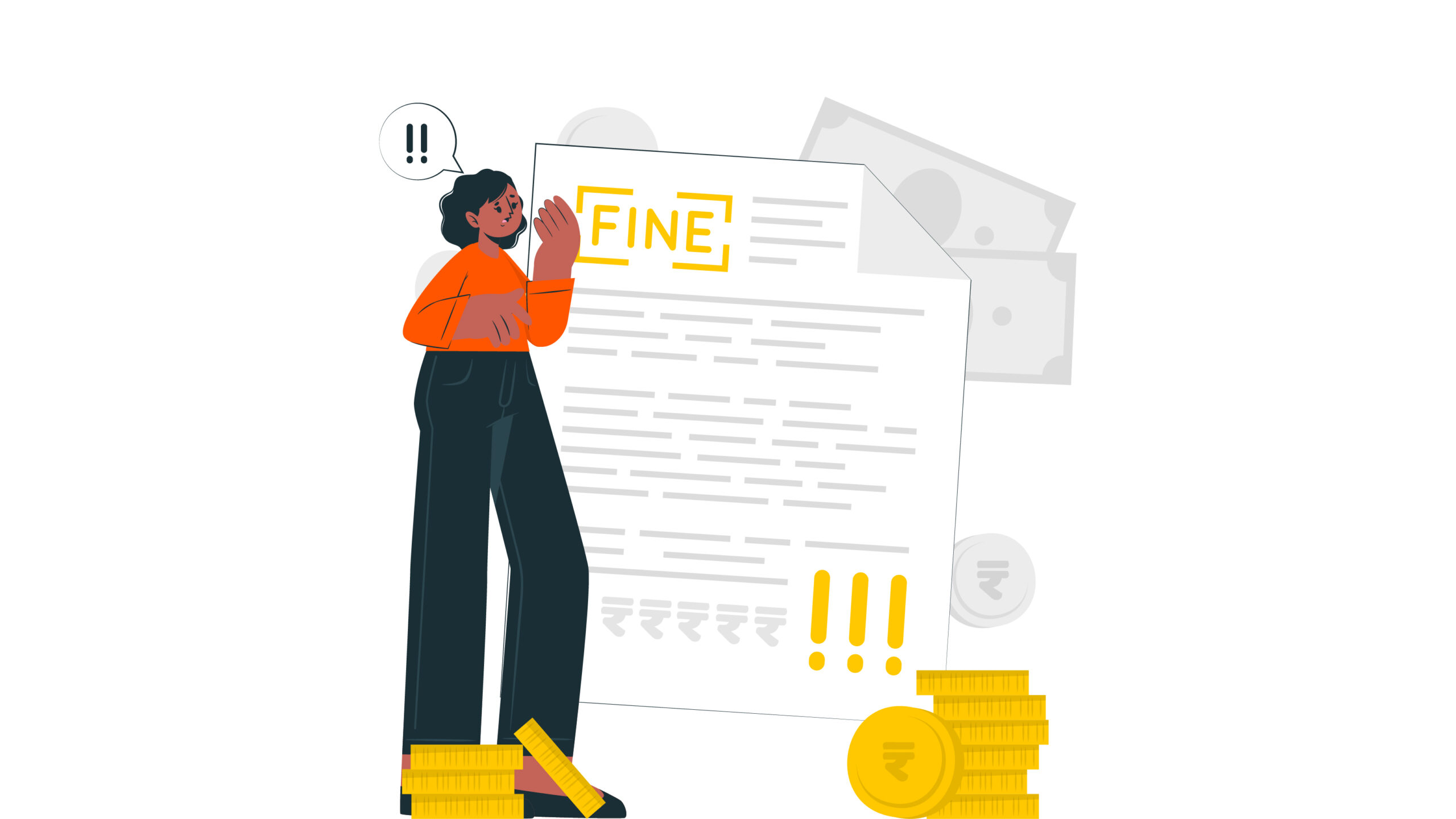The landscape of personal lending in India has undergone a significant transformation, with a notable increase in the demand for loans, especially unsecured and small-ticket loans valued at less than INR 50,000. This trend has been fueled by the loans’ affordability and ease of access, attracting a younger demographic and consumers from semi-urban and rural areas.
However, this loan increase has also led to a rise in defaults. Data indicates a troubling surge in loan defaults, particularly with small-ticket loans. In this article, Let’s delve into the consequences of defaulting on a loan in India.
Consequences of Defaulting on a Personal Loan
Life is unpredictable, and despite our best efforts, we sometimes find ourselves in financial distress. You might have planned and budgeted with the utmost care. Still, unforeseen circumstances like a sudden job loss, medical emergencies, or unexpected financial burdens can disrupt even the most solid plans.
Yet, it’s important to remember that while defaulting on a loan is severe, it’s not the end of the road. Let’s explore the path to recovery and how to handle the problem if you are labelled a loan defaulter in India
Damaging Your Credit Health
One of the foremost repercussions of defaulting on a personal loan is the detrimental effect on your credit score. Once a default occurs, the lender reports these missed payments to credit bureaus, precipitating a decline in your credit rating. This reduction in credit score has long-term implications, complicating your financial future significantly. It not only hampers your ability to acquire loans at advantageous interest rates but also impacts your eligibility for credit cards and can even influence rental agreements.
Facing Legal Repercussions
When you default on a loan, you open yourself up to potential legal action from lenders seeking to recoup the borrowed amount. This could involve court cases, judgments, and even the garnishment of wages or seizure of assets, further straining your financial and personal reputation. The lender may opt for criminal proceedings in more severe cases involving fraud or misappropriation of funds. Under Section 420 of the Indian Penal Code, the borrower could face imprisonment for up to two years. However, criminal charges are typically reserved for instances of intentional wrongdoing.
Incurring Additional Financial Strains
Loan defaults trigger a possibility of extra fees and penalties, including late payment charges and heightened interest rates, exacerbating the debt burden and complicating repayment efforts. These added costs can significantly inflate the total amount owed, making financial recovery more daunting.
Risk of Losing Collateral
Secured loans pose the risk of collateral seizure in the event of default. Whether it’s a vehicle, savings account, or other assets used as security, lenders have the authority to claim these possessions, leaving you in a potentially precarious situation.
Effective Strategies for Preventing Loan Default
Communicate with the lender
Proactively communicating with your lender about any impending financial hardships is crucial. Many lenders are willing to work with borrowers to explore alternatives, such as modifying your repayment plan or granting a temporary forbearance. Transparent dialogue can foster understanding and help avert more severe consequences like legal action.
Consult Financial Experts
Seeking the guidance of a financial advisor, such as a Chartered Accountant, Certified Public Accountant, or a dedicated credit counselling service etc., can be a beacon of light during challenging financial periods. These professionals can offer personalized advice on managing your debt and may even negotiate with lenders on your behalf. Their expertise can illuminate pathways to debt management that you might have yet to consider.
Explore Support from Personal Networks
Turning to friends or family for financial support can be delicate, but it may also provide a critical lifeline if you’re on the brink of default. Before approaching loved ones, assess precisely how much you need to cover your obligations. Discuss your situation openly, set clear repayment terms, and consider drafting a formal agreement to ensure both parties’ expectations are aligned.
Refinance Your Loan with Lower Interest Options
Refinancing your loan can be a strategic move to alleviate financial pressure. You can significantly reduce your monthly payments by securing a loan with a lower interest rate. This method replaces your existing debt with a new loan, ideally with better terms. Before proceeding, it’s crucial to thoroughly comprehend the new loan’s terms, fees, and total interest cost.
Opt for Debt Consolidation
For individuals facing challenges in keeping up with various loan repayments and facing the risk of default, debt consolidation can offer a viable solution. This could involve taking out a larger personal loan or securing a loan against assets such as securities, shares, or mutual funds, to settle smaller debts. A practical example of this strategy includes taking a Loan Against Mutual Fund (LAMF) from companies like FinEzzy, which offers loans at competitive rates. By securing a loan through FinEzzy, you can consolidate your debts into one manageable loan, potentially easing the financial strain and reducing the overall interest burden
Investigate Employer Assistance Programs
Some companies offer financial assistance programs to employees facing hardship. These initiatives can vary widely, from loans or grants to referrals for financial counselling. If you need clarification on whether your employer offers such support, reach out to your HR department for information. Taking advantage of these programs can offer a buffer against financial strain and help you navigate out of a potential default scenario.
Managing Your Money and Loans: Easy Solutions for Hard Times
Assess Your Financial Health
Carefully evaluate your income, expenses, and current debts to ensure you can handle the loan repayments. Ensuring that the monthly instalments are well within your financial capacity is essential. Also, a detailed budget should be implemented to your spending. Allocate funds prudently to ensure you can comfortably cover your loan payments each month. Adhering to this budget is critical to managing financial obligations without overextending yourself.
Diligent Loan Research and Selection
Invest time in researching and comparing different loan products. Scrutinize their interest rates, terms, and associated costs. Opt for loans with terms that align with your financial situation and consider fixed-rate loans to shield against rate fluctuations.
Create an emergency fund
Create an emergency fund to serve as a fallback during unforeseen financial difficulties. Aim to save a reserve covering several months of living costs, providing a cushion to help sustain loan repayments in tough times.
Conclusion
Loan defaults can significantly impact your financial well-being, affecting your credit score, hindering future borrowing, and creating considerable stress. However, it’s not inevitable. You can prevent this situation and protect your financial health by taking proactive steps.
First, practice responsible borrowing. Only borrow what you can comfortably repay, factoring in potential changes in your financial circumstances. Next, manage your finances diligently. Create a budget that outlines your income and expenses and stick to it. This will help you avoid overspending and have sufficient funds to repay your loan. Finally, maintain open communication with your lender. If unforeseen circumstances make it challenging to meet your loan obligations, feel free to contact your lender as soon as possible. They can offer solutions like payment extensions or adjustments to help you get back on track. Taking these steps demonstrates your commitment to financial responsibility and empowers you to build a strong credit history, ultimately laying the foundation for a secure financial future.





